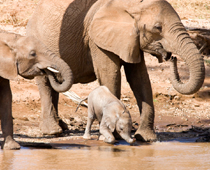
Ask the AI Tutor
Need help with Alliteration? Ask our AI Tutor!
AI Tutor - Lucy
Connecting with Tutor...
Please wait while we establish connection

Playing quizzes is a perfectly pleasant pastime!
Alliteration
Have fun with alliteration, where words start with the same sound, to make tongue twisters, poems, and posters lively and unforgettable.
To see a larger image, click on the picture.
1 .
2 .
3 .
4 .
Finish this sentence to make it include alliteration: Ten tall tents...
cost a fortune.
look great together.
made one small tent.
turned together in the wind.
The letter 't' was being used lots there. Alliteration mainly uses consonants, so try not to use alliteration with the letters a, e, i, o and u.
5 .
6 .
Which of these answers shows alliteration?
The busy monkey started work.
The busy, funny monkey enjoyed work.
The busy, brainy monkey went to work.
The happy, brainy monkey loved to work.
Alliteration can be seen in the word 'busy' and 'brainy'. Alliteration is used in poems and can be used in stories and other types of writing.
7 .
8 .
9 .
Which of these answers shows alliteration?
The twisting tornado turned towards the town.
The tornado moved closer to the shops.
The tornado was very big and scary.
The tornado blew the house down.
Tornados are often called twisters and that first sentence happened to be what we call a tongue twister!
**Unlimited Quizzes Await You! 🚀**
Hey there, quiz champ! 🌟 You've already tackled today's free questions.
Ready for more?
Ready for more?
🔓 Unlock UNLIMITED Quizzes and challenge yourself every day. But that's
not all...
not all...
🔥 As a Subscriber you can join our thrilling "Daily Streak" against other
quizzers. Try to win a coveted spot on our Hall of Fame Page.
quizzers. Try to win a coveted spot on our Hall of Fame Page.
Don't miss out! Join us now and keep the fun rolling. 🎉
**Unlimited Quizzes Await You! 🚀**
Hey there, quiz champ! 🌟 You've already tackled today's free questions. Ready for more?
🔓 Unlock UNLIMITED Quizzes and challenge yourself every day. But that's not all...
🔥 As a Subscriber you can join our thrilling "Daily Streak" against other quizzers. Try to win a coveted spot on our Hall of Fame Page.
Don't miss out! Join us now and keep the fun rolling. 🎉
















